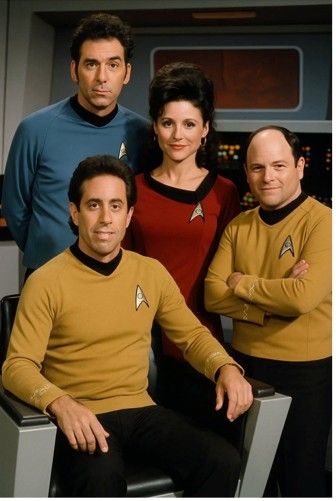In recent years diplomats have increasingly employed pop culture in their digital communications. Some nations, for instance, celebrate Star Wars Day on May the 4th tweeting at their followers. Others employ pop culture memes when attempting to shape global public opinion. Countries such as Ukraine, Russia, Israel and the UK have all relied in popular culture to legitimize their policies while de-legitimizing those of adversaries, as shown in the tweet below. In Ukraine’s case, pop culture icons have even been recruited as digital Ambassadors helping the country raise funds for its war effort. Such is the case with Star Wars actor Mark Hamill or singer Barbra Streisand that use Twitter to crowdfund aid and weapons for Ukraine. bbb
Pop culture is invoked by diplomats because it represents a global language. Pop culture serves as a global reservoir of images and meanings that can be understood by social media users the world over. A diplomatic tweet featuring a Marvel superhero or a Star Trek alien or even a character from Friends can be instantaneously understood by publics in France, India and Japan. As such, global popular culture allows diplomats to deliver global messages to a global public while dealing with issue of global concern.
Essentially, global popular culture is similar to all languages. It is comprised of a large set of signs that can be decoded by native speakers. It is a collection of “signifiers” or words that evoke the same mental image in the minds of all speakers. Just as the word “tree” evokes the same mental image in the minds of English speakers, so Captain America’s shield evoked a shared mental image in the minds of pop culture speakers. And although popular culture is often tailored by local publics, with scenes from US films being deleted in China, these signifiers can be used to deliver messages that can be deciphered by all pop culture speakers. This is made possible by the text that accompanies pop culture tweets and posts in which diplomats “anchor” the meaning of a signifier. Such is the case with the post below from the European Commission.
However, the recent advent of AI and Generative AI in particular poses a challenge to diplomats’ ability to converse with global publics. The reason being that AI users are increasingly generating content that subverts the global language of pop culture by blurring the relationship between signifiers and signifieds. Such is the case with the image below that reimagines that cast of Seinfeld as a Star Trek crew. Undoubtedly, if diplomats use Seinfeld characters in a tweet today, it will still be recognizable to millions of social media users and will have a similar or shared meaning. But as the mental images of Seinfeld and Star Trek begin to merge, and as social media users as exposed to more and more AI images linking Seinfeld with Star Trek, there will be a new subset of pop culture speakers who assign new meaning to the Seinfeld signifier.
This phenomenon becomes even more complex when one considers the amount of pop culture “mash ups” that are generated daily by AI users. As shown below, these include Mr. Miyagi teaching Robocop how to “Wax on and wax off”; the infamous Hannibal Lecter appearing on Sesame Street; Indiana Jones trying to liberate Han Solo from Jabba the Hut; and even Princess Leia having a love affair with Mr. Spock, a blasphemous notion by any standard.

These AI images are all detrimental to digital diplomacy for three reasons. First, such images often go viral as they invoke the emotive power of two, different, pop culture symbols. Second, these images are not shared globally but funneled to subsets of social media users by algorithms. Third, they create a new “word” in the pop culture language, a new signifier that generates a new mental image that is not known to all native speakers. Slowly, and over time, these new AI images may limit the ability of pop culture speakers to converse with one another, generating a new Tower of Babel in which groups of social media users no longer understand one another.
And as this tower of Babel emerges, the ability of diplomats to leverage pop culture as a global language will diminish. Diplomats will either need to learn all the language in the Tower of Babel, or they will need to find new sets of symbols and codes that can be used globally. Ultimately, the very use of images to communicate quickly and coherently with transitional publics may disappear. This will prove a formidable challenge to diplomats as pop culture images allow diplomats to craft viral messages that circulate among diverse audiences while using pop culture to summon the attention of social media users and deliver a quick message given that an image is worth thousands of words.
In a digital world that celebrates virality and brevity, the loss of the pop culture language will be profound.














